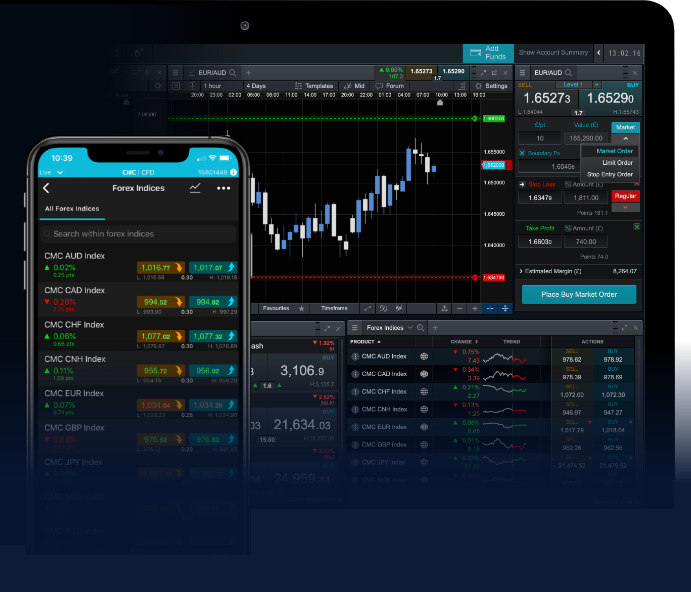
Forex Trading vs Stock Trading: Understanding Their Differences
In the world of investments, two of the most popular markets are Forex and stock trading. Each of these financial instruments presents unique opportunities, risks, and strategies. Whether you are a novice seeking to build wealth or an experienced trader looking to diversify your portfolio, understanding what sets Forex trading apart from stock trading is crucial. On this journey, we’ll also look at some of the forex trading vs stock trading Top Trading Platforms available for both trading types.
What is Forex Trading?
Forex, or foreign exchange trading, is the process of buying and selling currencies on a global market. It is the largest financial market in terms of daily trading volume, surpassing $6 trillion. Unlike stock trading, Forex trading takes place 24 hours a day during weekdays, allowing traders from around the world to conduct trades at any time. Most Forex trading occurs in pairs, where one currency is traded against another, such as EUR/USD (Euro/US Dollar).
Key Characteristics of Forex Trading
- Leverage: Forex allows traders to use leverage, which means they can control a large position with a smaller amount of capital. This can amplify profits but also increase risks significantly.
- Liquidity: The Forex market is known for its high liquidity, particularly with major currency pairs, making it easier to enter and exit trades without significant price changes.
- Market Hours: The Forex market operates 24/5, which gives traders flexibility to execute trades at their convenience.
What is Stock Trading?
Stock trading involves buying and selling shares of publicly traded companies. When you purchase a share, you essentially buy a small ownership stake in that company. The stock market operates on exchanges (like the New York Stock Exchange or NASDAQ) and its hours are generally limited to business hours of the exchange, making it less flexible than Forex trading.
Key Characteristics of Stock Trading

- Ownership: Buying stock gives you partial ownership in a company. This can entitle stockholders to dividends and voting rights in corporate decisions.
- Regulated Environment: The stock market is heavily regulated, providing a certain level of security for investors. This includes requirements for companies to disclose important financial information.
- Diverse Investment Options: Investors can choose from thousands of publicly traded companies across various industries, allowing for diversified investments.
Comparing Forex and Stock Trading
While both Forex and stock trading offer ways to invest and grow wealth, several key differences set them apart:
1. Market Hours
As mentioned earlier, the Forex market is open 24 hours a day from Monday to Friday, which allows for higher flexibility in trading schedules. Conversely, stock markets operate during specified hours, typically 9:30 AM to 4 PM EST in the United States.
2. Leverage
Forex trading often offers higher leverage compared to stock trading. While stock trading may allow leverage up to 2:1 or 4:1, Forex brokers can offer leverage rates that range from 10:1 to 100:1 or more. This can be beneficial for traders looking to increase their profit margins.
3. Volatility
The Forex market can be more volatile than the stock market due to economic events, political instability, and fluctuations in the global economy. Traders in the Forex market need to be vigilant to manage risks effectively.

4. Complexity
Stock trading can be relatively more straightforward since it often revolves around the performance of the companies themselves, based on earnings, news, and economic health. Forex trading, conversely, is influenced by macroeconomic trends, geopolitical events, and economic indicators, which may require more in-depth analysis.
5. Cost of Trading
Forex trading typically involves lower transaction costs compared to stock trading. Forex brokers often charge a small spread between buying and selling prices, whereas stock trading may involve higher commissions, depending on the brokerage. Additionally, traders need to account for overnight financing fees in Forex trading.
Which is Right for You?
Deciding whether to engage in Forex trading or stock trading depends largely upon your investment goals, risk tolerance, and trading style. Here are some considerations to help guide your decision:
- If you prefer to trade with flexibility and around the clock, consider Forex trading.
- If you are interested in owning a piece of companies and benefiting from their growth, stock trading may be more suitable.
- If you are comfortable with higher risk and leverage, Forex might align with your trading style.
- If you prefer a more regulated environment with ample resources and support, stock trading may be the better option.
Conclusion
Forex trading and stock trading each have their own advantages and disadvantages. Understanding the nuances of each market is vital for making informed decisions about your investments. Consider your personal goals, risk tolerance, and time availability when choosing your trading path. Ultimately, whether you choose Forex or stocks, proper education, research, and risk management will be your keys to success in the world of trading.

Recent Comments